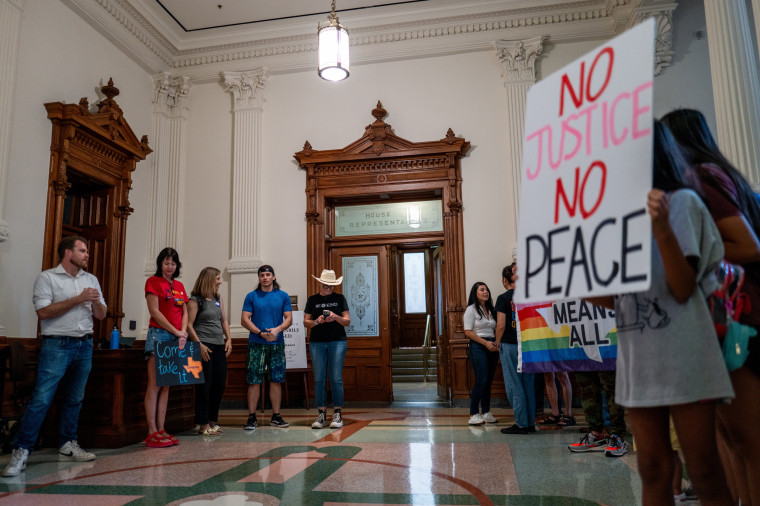A group of Texas Democrats are returning to the state House in Austin, where they will spend the night on the statehouse floor — the latest step in broader protest over Republican plans to redraw congressional districts in the state.
The state House Democratic caucus said in a press release that eight of its members will return to the floor Tuesday evening, “publicly tearing up the permission slips required by Republicans for members to leave the chamber.”
The Democrats will join state Rep. Nicole Collier, their colleague who has remained locked in the statehouse chamber since Monday afternoon after refusing the condition of a security escort to leave the chamber.
After Democratic lawmakers fled the state for two weeks, denying the state House a quorum to move forward with redistricting legislation, Republican leaders have demanded that Democrats agree to around-the-clock security escorts to ensure they’d return to the chamber on Wednesday for the redistricting vote.
Collier did not agree, so she’s remained on the floor, while her party has livestreamed her protest for more than a day. Tuesday night, though, she’ll have company ahead of passage of the redistricting plan in the House, which could happen as soon as Wednesday. The legislation is meant to pad the GOP majority in Washington.
Collier has framed her decision to remain in the statehouse as an act of defiance, telling NBC News she wouldn’t sign the de facto permission slip presented to Democrats by House GOP leaders outlining the conditions that allowed them to leave the chamber.
Those conditions are in effect because the House approved civil arrest warrants for the dozens of Democrats who left Texas earlier this month.
State Rep. Penny Morales Shaw, a Houston-area Democrat, told NBC News that she decided to return to stand with Collier because she didn’t want to be seen as “validating” the GOP’s “narrative that we were derelict.”
“Nicole was right. We should not have submitted to this,” she added. “I cannot support this very low and bad precedent for all future legislators.”


